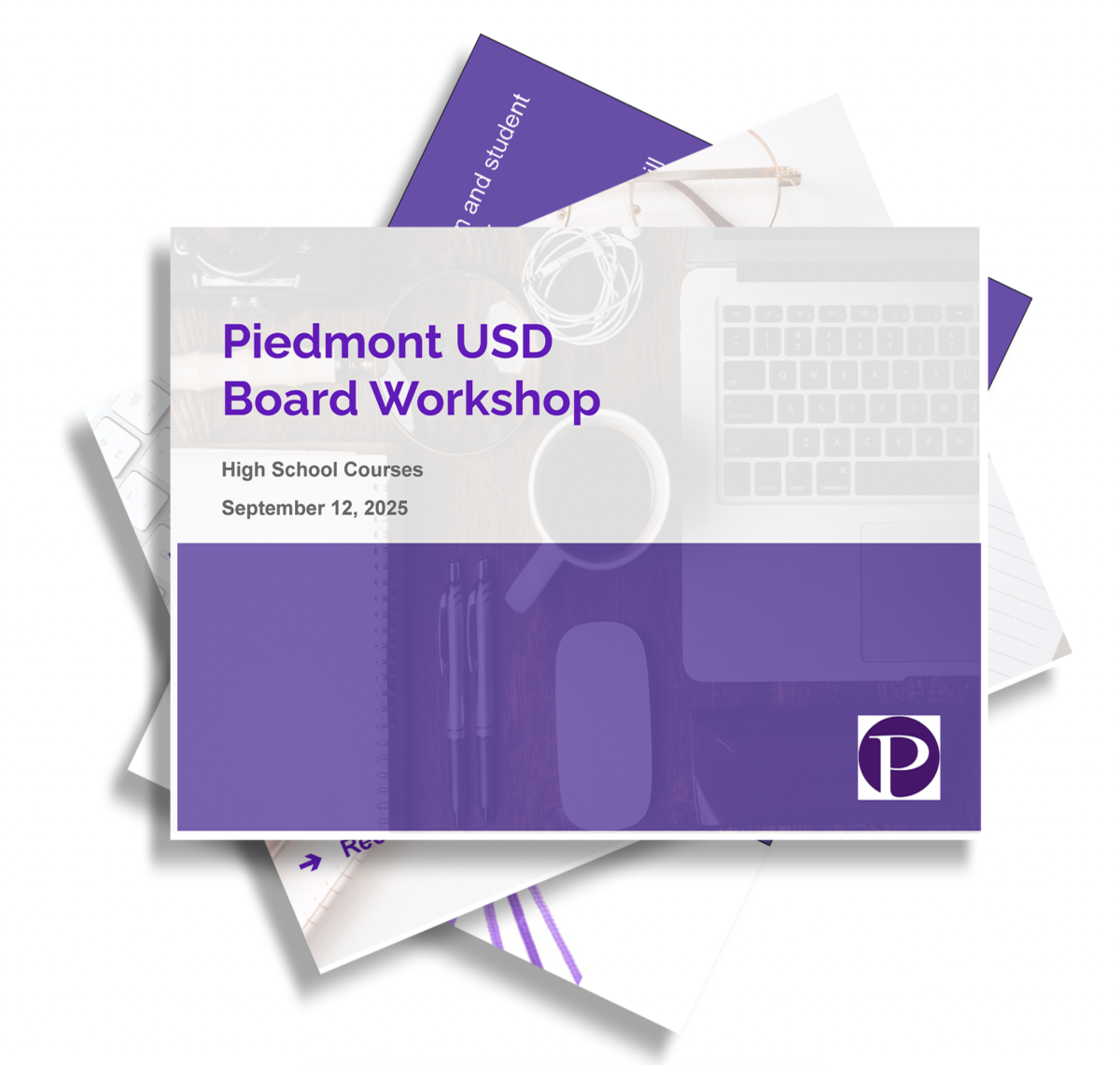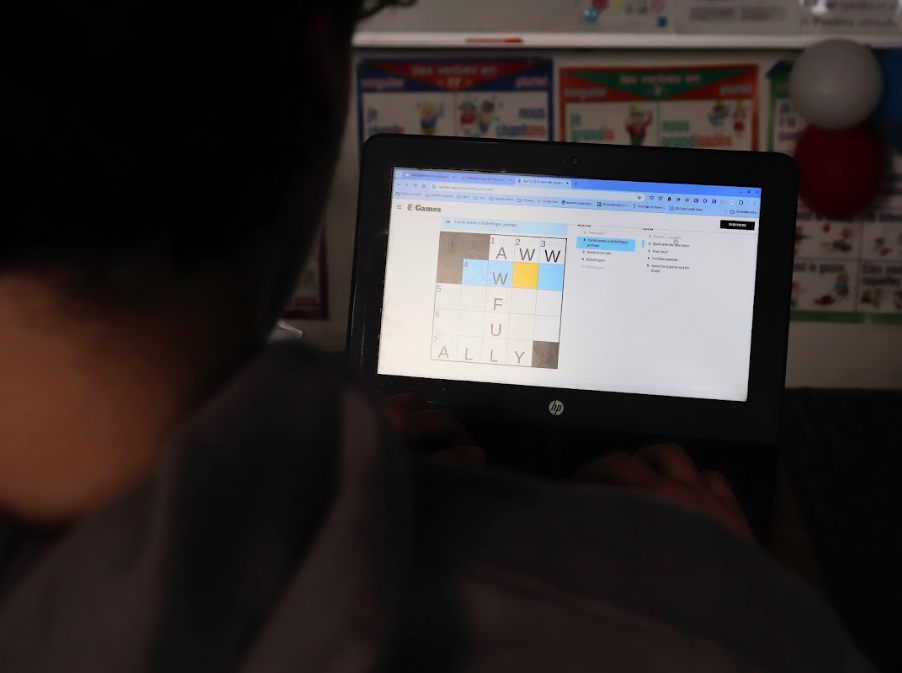Rows and rows of black Chromebooks face the front of the room as Economics teacher Gabrielle Kashani attempts to regain her students’ attention. Brows furrow behind screens, fingers jab keyboards, and students sigh in frustration. Suddenly, a loud jingle erupts from one computer: the all-too-familiar sound of solving a New York Times mini crossword.
Since 1942, the New York Times (NYT) has been running a Sunday crossword puzzle in their paper. Soon, the NYT expanded to a new puzzle daily, and, in 2014, its next game was introduced: the Mini. As a smaller crossword, the Mini operates as a speed game. Now, puzzlers have over 10 options, from the world-renowned Wordle to the recently added Connections.
According to Vanity Fair, in October there were over two million daily active users on the NYT games app. At least eighty-eight of these users are Piedmont students, according to an April 2024 TPH survey of 91 MHS and PHS students, offering one conclusion: the NYT games have officially infiltrated PHS classrooms.
Sixty-one percent of surveyed students said they played one or more NYT games during five or more days of the week.
“I go through my bookmarks folder with all the games called “The Rotation” and do them with my friend in English class,” junior Zoe Beisner said in the survey.
Many students prefer to stick with one game, specifically Connections, which first came out in July of 2023. Ninety-one percent of students said they played Connections and 78 percent said they played the Mini.
“I always like to try to find out what the purple category [in Connections] is, even if it’s the last one and I can just answer it without knowing the theme,” sophomore Theo Ferguson said. “I like the ones that have to do with the word construction or palindromes or little tricks like that.”
Sixty-one percent of students surveyed said that they play NYT games during class.
“I don’t ever really pull up the New York Times at home, I just play the games when I have nothing to do in class,” junior Kyra Trombi said.
Kashani said although she does the Wordle each morning when she wakes up, she is fed up with her students using class time to work on the puzzles.
“I love them. And I think there’s a time and place for them. So I struggle with my students doing anything else on their screens. When they’re in class, they’re supposed to be learning,” Kashani said.
She said that though the puzzles are more intellectually challenging than other computer games, they are still an interruption.
Some students enjoy the games because they foster a sense of productivity.
“[I play NYT games] because they are fun and teach me to use my brain in specific ways,” freshman Olivia Britt said in the survey.
For others, the games act as a daily ritual. Senior Audrey La Jeunesse has a specific order she plays the games in daily, whether during school or at home.
“I’ll do the Mini, then Connections, then Wordle, and then I may or may not do Strands,” LaJeunesse said.
Sophomore Elisha Bell said that her Wordle streak is 180 days in a row.
Nineteen percent of students surveyed said they compete with others, namely in Wordle.
“My family competes in the Wordle; we text the group chat every day to tell each other how many guesses we used,” sophomore Kate Jumper said.































